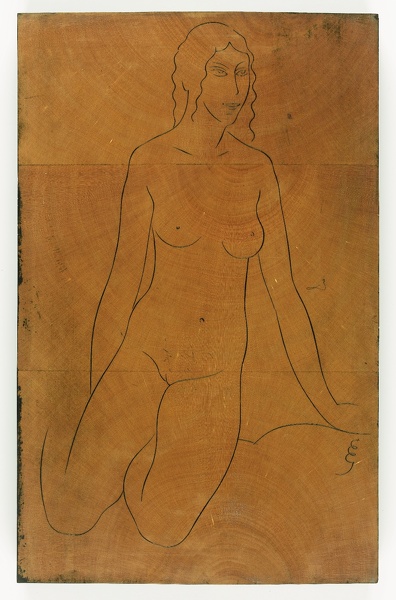
Eric Gill:
Standing Female Nude (from Twenty-five Nudes), c 1938
Unframed (ref: 7317)
Engraved wood block
Signed with monogram, numbered '633' on reverse with T.N. Lawrence block maker stamp
Tags: Eric Gill woodblock life drawing women 1.master prints 1.PORTRAIT OF AN ARTIST Hidden Gems - Nudes
Provenance: The Felix Dennis collection
Literature: Llewellyn, Sacha, and Paul Liss. Portrait of an Artist. Liss Llewellyn, 2021, p.142.
This block (P951) was used for the 1938 book Twenty-five Nudes.


The only serious and solemn part of drawing from the life is the technique itself. How to draw? That is the serious question. What is drawing? To draw is to drag or pull something along, and in this matter it means dragging or pulling a pencil or brush along the surface of paper. We may agree perhaps that pushing a graver is, by a sort of licence, also a kind of drawing – drawing backwards. Smudging about with tones and colours is not drawing, though such things may appropriately be added on occasion. Good drawing, then, means good lines – clean lines, clear lines, firm lines, lines you intend and not mere accidents. That’s all there is to it. But a line is not in practice what Mr Euclid says it is. It has width as well as length. There are two edges to it, and therefore if a line represents a contour it follows that the said contour is represented by one edge or the other; it cannot be represented by both. The draughtsman must remember this. It is almost the first rule to be taught and the last to be learnt. Do you think of your line as a narrow portion of the surface of the thing you are drawing, or as a narrow strip of its background? Your pencil cannot be absolutely sharp-pointed. It makes a line with two edges. Which edge is the contour you are drawing?

















